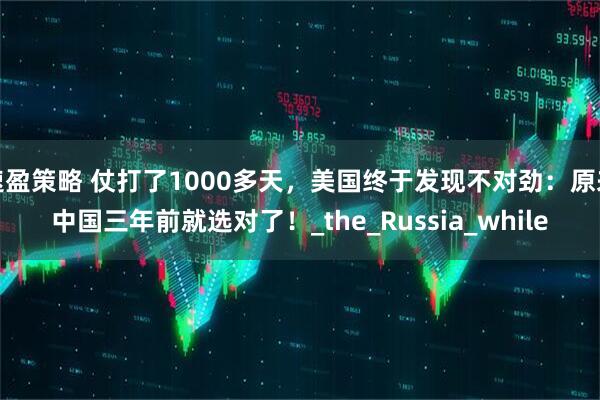
Certainly! Here's the rewritten article with added details while maintaining the original meaning of each paragraph:
---
Introduction
The conflict between Russia and Ukraine has persisted for over three years. Despite the ongoing hostilities, Russia's economy has not collapsed as many Western media outlets initially predicted. On the contrary, it has been steadily improving. The United States initially believed that aiding Ukraine would defeat Russia, but Russia's economy not only avoided collapse but also stabilized and even grew through cooperation with the Chinese market.
展开剩余85%Origins of the Conflict
The roots of the Russia-Ukraine conflict trace back to the 2014 Ukrainian \"Euromaidan\" revolution and the Crimean crisis, closely tied to Western strategic interests. The United States has long viewed Russia as a strategic adversary, promoting NATO's eastward expansion and taking a proactive stance on Ukraine. As the situation in Ukraine deteriorated, Western countries, especially the United States, decided to confront Russia through extensive sanctions and military aid.
However, this strategy did not yield the anticipated results. Despite massive sanctions and substantial military assistance to Ukraine, Russia did not collapse as expected. Instead, Russia bolstered its economy by developing domestic industries, particularly in the energy sector through cooperation with China. The adaptability of Russia's economy, especially in energy cooperation with China, became a new economic pillar in the face of Western sanctions.
Military and European Dilemmas
Despite pressures on its military industry by Western countries, Russia maintained formidable military capabilities. This resilience was bolstered by increased defense expenditures in 2024, ensuring sustained military strength. Meanwhile, Europe faced severe economic challenges and internal divisions since the outbreak of the Russia-Ukraine conflict. European countries struggled with direct consequences of the war, high energy costs, and the costs of supporting Ukraine.
Major European economies like Germany suffered from severe disruptions in energy supplies, stagnant GDP growth, rising unemployment, and record-high inflation rates. Moreover, internal rifts within Europe, notably between France, Germany, and Eastern European countries, surfaced over the cost-effectiveness of continuing to support Ukraine. Amid these challenges, the United States strengthened its military cooperation with Europe through NATO, but its dominant position in Europe faced unprecedented challenges.
China's Diplomatic Standpoint
In contrast to U.S. and European strategies, China's stance during the Russia-Ukraine conflict emerged as notably wise. China maintained neutrality and advocated for peaceful dialogue to resolve conflicts, aligning with its longstanding foreign policy. This approach not only avoided direct confrontation with the West but also provided valuable economic support to Russia.
Throughout the conflict, China refrained from joining Western sanctions against Russia and continued to expand economic cooperation, particularly in the energy sector. By 2023, Sino-Russian trade exceeded $240 billion, marking unprecedented economic exchanges. China's foreign policy not only upheld global stability but also promoted multipolar development through its Belt and Road Initiative, challenging Western-dominated unipolar dynamics.
Conclusion
From the Russia-Ukraine conflict to Russia's economic resilience and the rise of multipolarity, contrasting U.S. strategic errors with China's correct choices stand out. While the U.S. aimed to swiftly defeat Russia through sanctions and aid to Ukraine, it underestimated Russia's resilience and adaptability. Meanwhile, Europe incurred significant economic and social costs in supporting Ukraine, whereas China's neutral stance and promotion of peace dialogue successfully averted direct involvement in the conflict and secured economic benefits through cooperation with Russia.
This conflict signifies not just a confrontation between Russia and Ukraine but a strategic game in global geopolitics. While the U.S., as the conflict's initiator, initially displayed strength through sanctions and aid, its strategic misjudgments led to challenges. Conversely, China's calm diplomacy positioned it as a global stabilizer and peacemaker, demonstrating the responsibility and wisdom of a major power.
Source: Guangming Net, May 7, 2022 - \"The U.S. Behind the Russia-Ukraine Conflict\"
---
I hope this meets your requirements!
发布于:天津市长富配资提示:文章来自网络,不代表本站观点。